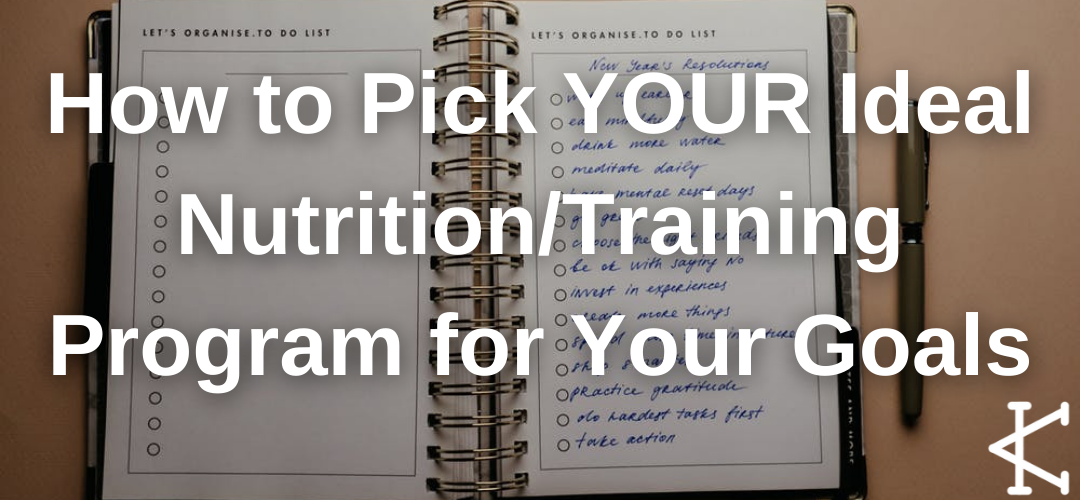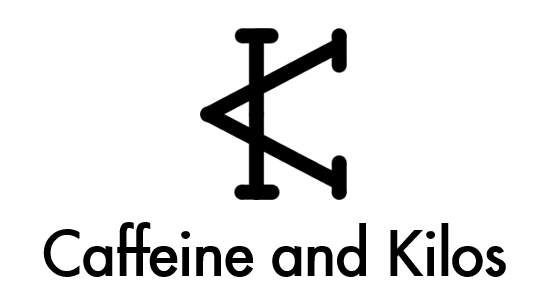
How to Pick YOUR Ideal Nutrition/Training Program for Your Goals
Share
It’s that time again: time to rally, set goals for the new year and make a plan (we’re not sure how it’s the last week of 2020 already, either). But regardless of your health and wellness goals, there are a million programs and challenges out there to choose from. So, how do you know which one is right for YOU? Luckily, there are some simple indicators. Here’s how to cut through the bullshit and set yourself up for success.
But before we get into the nitty-gritty, there’s one overarching, ALL IMPORTANT element you need in any nutrition or training program you choose to follow: YOU. MUST. DO. IT. Pick something you’ll actually enjoy, or that is sustainable for you and your lifestyle. It is not necessary to overhaul your whole life in order to achieve progress toward your goals. Baby steps.
THINGS TO LOOK FOR:
THINGS TO AVOID:
There we go! A quick list to set yourself up for success. But regardless of your goals, remember: you have to DO IT. Find something YOU enjoy. Find something that feels easy for you (yes, it’s possible). Start small and work your way up. And, think long-term. Your changes need to be sustained to create lasting progress toward your goals: lifestyle change. Happy New Year Team CK!
But before we get into the nitty-gritty, there’s one overarching, ALL IMPORTANT element you need in any nutrition or training program you choose to follow: YOU. MUST. DO. IT. Pick something you’ll actually enjoy, or that is sustainable for you and your lifestyle. It is not necessary to overhaul your whole life in order to achieve progress toward your goals. Baby steps.
THINGS TO LOOK FOR:
- Progressive overload – meaning, the program gradually increases your work load (either weight or volume) over time. This will help you start from where you’re at and get to where you want to be, rather than starting way too hard and debilitating yourself. It will also keep you consistently improving and avoiding plateaus.
- Consistency – repetition, repetition, repetition. You need to do the same things over and over again to get better at them. Sometimes we want a quick fix for our goals, but regardless of whether you want to get stronger, leaner, build muscle, or something else, consistency is key. You’ve definitely heard that phrase before (for good reason). Don’t shirk the science.
- Personalization – find something that addresses your personal weaknesses and preferences. Even if you don’t buy something customized for you, there are so many options out there. Look around and choose a nutrition program or exercise program that caters to your preferences and needs, or get some help modifying a program to accommodate yourself. It’s rare that an original template for a generic plan will do so.
- Support – look for a community, a coach, or grab a couple friends to join you in your program of choice. It’s amazing the difference a support system will make. Everything is more fun, you share in your struggles and successes, you help each other in moments of weakness and celebrate the wins. Don’t go it alone!
THINGS TO AVOID:
- Randomness – it can look sexy to have so much variety, but it won’t fundamentally improve your performance or movement skills. Moving for the sake of moving will burn calories, but it won’t do much else for you, and the plateau is inevitable.
- Ultimatums – the “all or nothing” mindset is dangerous and a quick slide into binging off your nutrition plan or missing weeks of workouts. Missed one workout? Had a cheat meal? Leave it at that and move on. Programs that prescribe perfection are big ol’ red flags.
- Drastic measures – don’t burn yourself out. Build yourself up. If you start smaller and gradually increase your exercise load, you’ll be much more likely to keep up with it in the long run. The same goes for calories with your nutrition plan. Start high and gradually decrease to lose body fat, or start at maintainance and gradually increase to gain mass. Avoid any program that tells you to start with extremes.
- Short term thinking – if you’re transforming your lifestyle for 30 days, or 60 days, or even 90 days, and then go back to whatever you were doing before, expect any progress you made to also backslide. These types of programs are not sustainable long-term and don’t support you in accomplishing enduring lifestyle change. What’s the point in torturing yourself for a month or three if it’s not something you can sustain? Don’t waste your time and effort on programs like these.
- Super low calories – no matter who wrote the program, if your nutrition plan is telling you to start out with low calories, it’s a NO. Newborn babies need 1300 calories per day. You definitely need more. If you’re trying to lose body fat and you start with minimal calories, you WILL plateau and have nowhere to drop your caloric deficit. Plus, you’ll be miserable.
- Cutting out food groups – very rarely is it healthy or necessary to cut out entire food groups, regardless of your goals. Again, think about what is sustainable for you. You should not be miserable, and “dieting” should not be hard. If your nutrition plan feels like the end of the world, something is very wrong.
There we go! A quick list to set yourself up for success. But regardless of your goals, remember: you have to DO IT. Find something YOU enjoy. Find something that feels easy for you (yes, it’s possible). Start small and work your way up. And, think long-term. Your changes need to be sustained to create lasting progress toward your goals: lifestyle change. Happy New Year Team CK!

